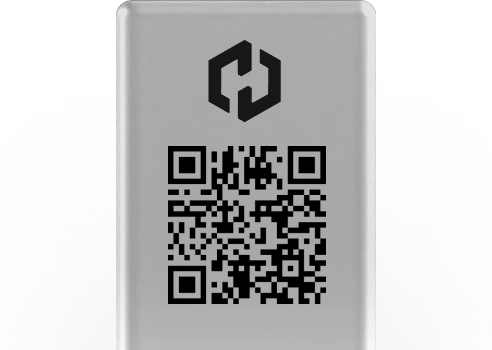Invest in Lido (LDO) on Coinhouse: the decentralized staking protocol for Ethereum (ETH).
With Lido, deposit your ETH and earn stETH rewards.
Explore return opportunities with Lido today.


What is Lido (LDO) ?
Introduction
What is Lido?
The DeFi Lido protocol was founded in 2020 by Konstantin Lomashuk, Vasiliy Shapovalov and Jordan Fish.
Numerous investors have participated in Lido-led fundraisings such as ParaFi Capital, Libertus Capital, Bitscale Capital, StakeFish, Chorus, P2P Capital. Lido is an application that belongs to the decentralized decentralized finance (DeFi).
Lido runs on the Ethereum blockchain.
Lido’s aim is to facilitate access to crypto staking.
Lido’s key feature is liquid staking.
As the name suggests, this type of staking allows you to benefit from more “liquidity”.
How does it work?
In general, staking involves “blocking” a portion of your cryptos.
In other words, the cryptos you stake cannot be used or exchanged.
While staking allows you to earn passive income, it is not a flexible activity.
Indeed, if you need cash immediately, you won’t be able to resell your staked cryptos.
This is where liquid staking and Lido come into their own!
With liquid staking, you receive a representative token (called a Liquid Staking Token or LST) in exchange for the staked cryptos at a 1:1 ratio.
In concrete terms, if you staked 0.5 ETH, you would receive 0.5 stEHT.
The advantage of LST tokens is that they can be used in DeFi applications or even resold.
LDO is the native token of the Lido platform, an ERC-20 token.
It enables you to use Lido services and participate in the governance of its DAO.
See Lido price online.
Why choose Lido?
To become an Ethereum validator, you need a minimum of 32 ETH – a high entry ticket!
What’s more, although the situation has improved with the Shanghai update, Ethereum staking is not easily accessible in case of emergency.
Finally, being a validator on Ethereum requires continuous node management (7 days a week), which is restrictive.
Lido is a key DeFi product, as it facilitates Ethereum crypto staking.
With Lido, you can participate in the Ethereum network with no minimum contribution via staking pools.
What’s more, by staking Ethereum on Lido, you earn stETH tokens which you can use freely.
While Lido is primarily focused on Ethereum staking, it also allows you to stake other cryptos such as Polygon (MATIC) and Polkadot (DOT).
It works on the same principle as Ethereum, with the creation of representative tokens at the 1.1 ratio (stMATIC, stDOT, etc.).
Finally, the Lido protocol has also opened up to other Ethereum layers 2, such as Arbitrum and Optimism, with “wrapped” versions of stETH (wstETH).
At present, Lido is the leading DeFi protocol, with a TVL in excess of $32 billion, up 40% over the last 30 days.
The DeFi protocol includes many well-known DeFi partners, such as Balancer, Curve, Cosmos and Kyber Network.
Why buy Lido on Coinhouse?
A secure platform: with Coinhouse, your crypto trading takes place within a completely secure framework.
As a crypto pioneer in France, Coinhouse has extensive experience in protecting customers and cryptos. Putting the user first: Coinhouse’s interface has been designed to deliver the best possible user experience (UX).
In just a few minutes, you’ll be able to buy Lido or any other crypto! French-language support: Coinhouse understands that crypto trading requires support.
If you have any questions, don’t hesitate to contact Coinhouse customer service.
In addition to its crypto expertise, customer support will answer you in French! Coinhouse is a PSAN: unlike other crypto platforms in France, Coinhouse is recognized directly by the AMF.
Since 2020, Coinhouse has been registered as a PSAN (Prestataire de Services sur Actifs Numériques).
How to buy Lido on Coinhouse?
- Registration: to buy Lido, it’s best to use the services of a recognized exchange platform like Coinhouse.
Opening an account takes just a few minutes. - Verification: Coinhouse wants your cryptos to be safe.
That’s why, right from the start of the account opening process, Coinhouse will verify your identity.
You’ll be asked to provide a selfie of yourself visibly holding a piece of identification in your hand. - Deposit of funds: it is possible to buy Lido in euros on Coinhouse.
That’s why it’s important that you deposit funds on the platform (by card or bank transfer). - Buying LDO: by clicking on “Buy” on the home page, you can buy Lido with the euros you have transferred to the platform.
You can also buy Lido via exchange.
On Coinhouse, you can exchange USDC stablecoins (purchase USDT tokens) for LDO tokens. - Secure storage: cryptos are stored on a crypto wallet.
To simplify and avoid the risk of error or theft, Coinhouse provides you with its integrated, fully secure crypto wallet.
It’s possible to sell Lido on Coinhouse.
Once you have logged on to Coinhouse, simply select “Sell” and enter the quantity of LDO tokens you wish to sell.
Funds will be transferred within one to three working days.
News Lido in 2025
Lido stops staking on Solana. Following a community vote, Solana staking (buying Sol tokens with Coinhouse) has been discontinued on Lido in October 2023 for budgetary reasons. Lido available in the zkSync ecosystem. The Lido protocol was deployed in January 2024 on zkSync, Ethereum’s layer 2 which works with zero-knowledge rollups.
As is already the case with Arbitrum and Optimism, Lido will use the wrapped version of stETH, wstETH. Lido opens up to layer 2 Mantle.
In the wake of its integration with zkSync, the Lido team has announced the protocol’s interoperability with layer 2 Mantle.

Price Lido (LDO)
€ 0.78+2.5 %



















